 Wonder Why Direct Sales Invoices Have
Wonder Why Direct Sales Invoices Have
$0.00 Cost Price?

Have you ever done a direct sales invoice (GESSIH) under Sales > Invoices and noticed that the Cost price was equal to $0.00?
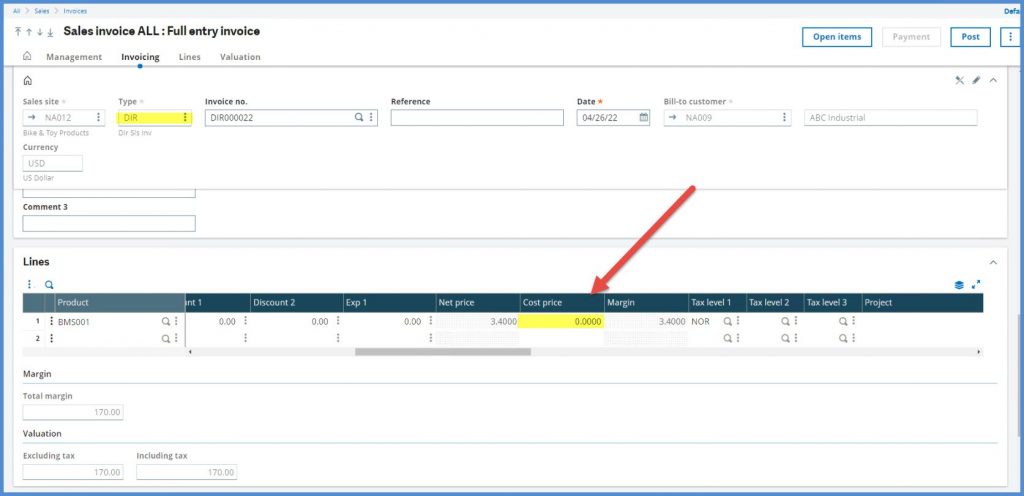
If you turn around and create a sales order, delivery, and a regular sales invoice, you have a Cost price value. What is the difference? You’ve used the same product, customer and quantity. Your Totals Excluding tax and Including tax are the same. This is the type of question that drives you crazy at the end of the day when you are testing and tired. Why is Cost price on the direct sales invoice different from the regular sales invoice?
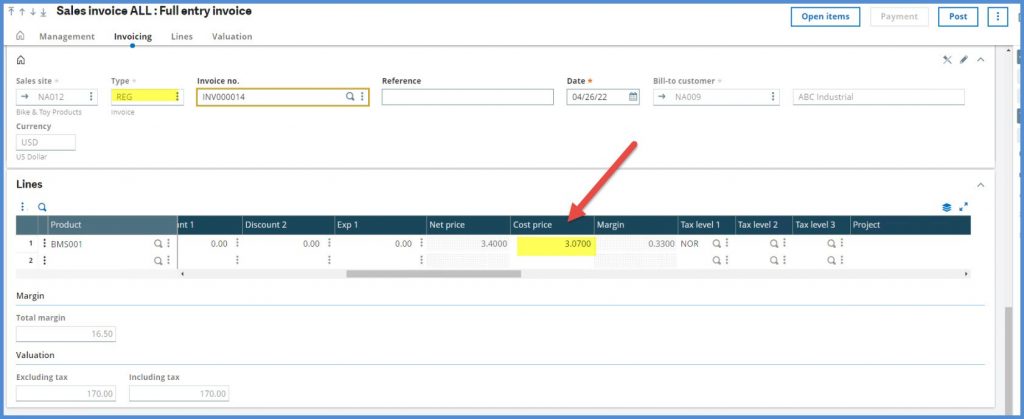
First, where does the Cost price come from? Per the Online Help:
“The cost price is loaded by default by the valuation of the product chosen for the margin calculation (see the valuation methods defined for the Product-Site record) at the time of the creation of the document line and is expressed in sales unit. The different choices possible for the cost price valuation are: Standard price, Revised standard price, Last price, Weighed average price, FIFO price, Lot average price and LIFO price. If the valuation method happened to return a zero value, a fall value can be used by specifying another valuation method contained in the list previously described. This value is stored in the document line.”
Let’s check the Product-Site record for BMS001. Its Valuation Method is STD.
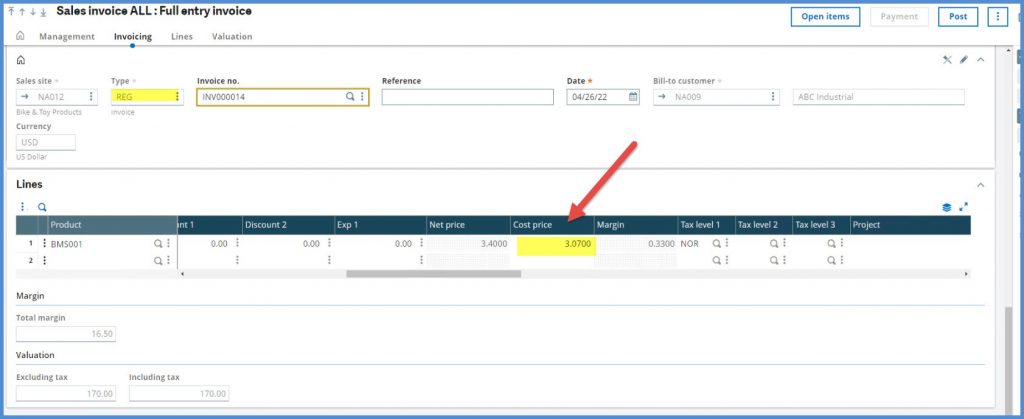
Now, we will look at the Cost history (GESHIC) under Costing, Performance analysis for NA012. We see that for invoice date 4/26/22, the Total standard cost is $3.07. The Cost price on the Reg Sales invoice and the Cost history for Cost type Standard tie.
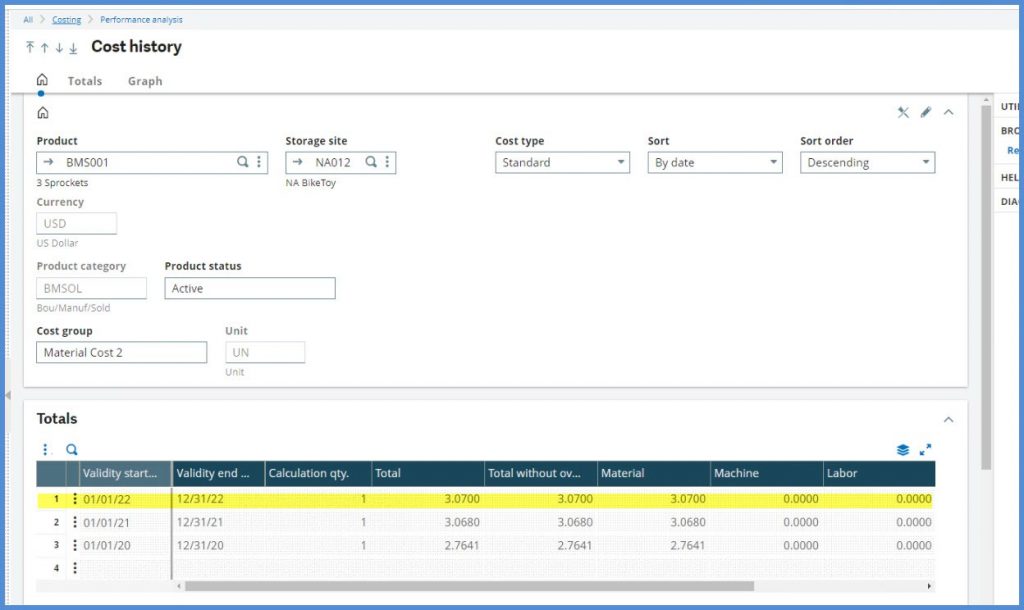
Why is the Cost price on the Direct Sales invoice $0? The difference is that the Stock transaction value is “No” on the Direct invoice.

The Stock transaction value is “Yes” on the Reg invoice.
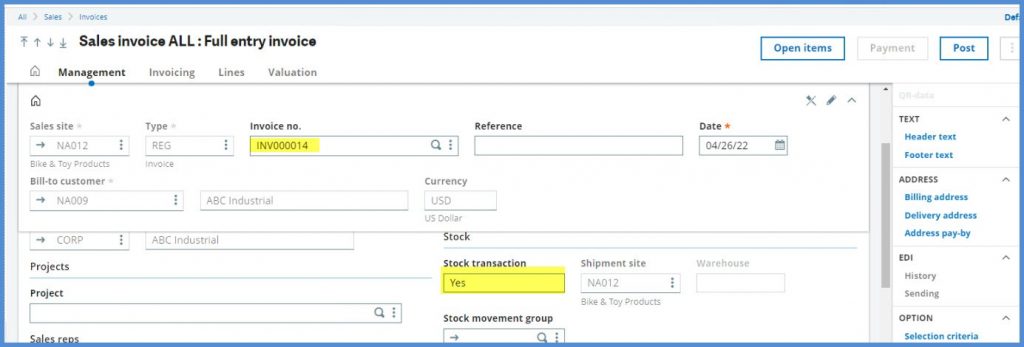
What is this Stock transaction field? Per the Online help: “Stock movement flag that indicates if the invoice is managed with stock update.” Remember that a Direct sales invoice is not associated with an order, shipment, or receipt. So, it makes sense that the Stock transaction value is “No” for the direct invoice and therefore no Cost price is pulled. You can manually enter the Cost price on the lines for informational purposes.
Hopefully you found the reason behind the $0.00 Cost price on Direct Sales invoices interesting. If you have any additional questions about this topic or any other questions about Sage X3, please contact us.
NOTE: Content for this blog post was originally posted on Sage City by Pam Nightingale, April 30, 2022.



